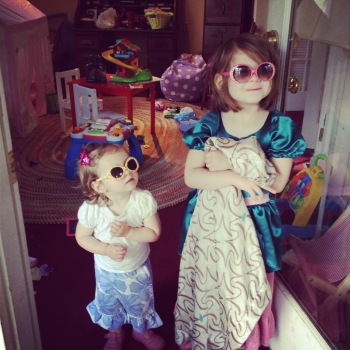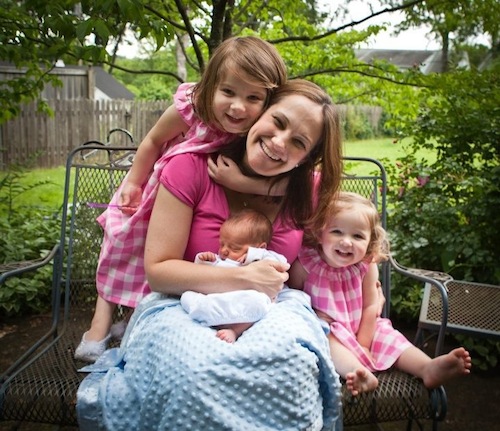When my oldest child, now four, was just a few months old, I used to walk around our neighborhood with her strapped snugly to my chest in a baby carrier. Claire was such a lovely baby, with lips like a rosebud; gorgeous, pink, chubby cheeks; and a perfectly dreamy spiral of wispy hair on her very round head. Her enthusiasm for life and all that lay ahead was apparent even in her infancy, and as we walked, she kicked her feet and punched the air with her fists as if rejoicing in the very opportunity to be in the world.
But having no experience with children and no real appreciation for them, I often found myself staring at this perfectly adorable, healthy, happy baby, or feeling the weight and lightness of her spirited little body strapped to mine, wondering when she would grow up so that I could have a conversation with her.
This mentality wasn’t a new one to me. As a teenager, I loved playing big, showy classical piano pieces, but I hated the rote work — memorizing the right fingering (the only way to make a big run up the keys without stumbling), hands separate, then together — and I trudged through it until I could finally feel the music rising to the surface. When my husband and I were dating, I often thought how nice it would be to know, during so many of our conversations, whether or not we would get married. And as a writer, forming the first few paragraphs of an essay are always pure drudgery. I want the finished product, polished and edited, first. I want to know the ending, or at least know how the ending might feel, before I begin. But life is so inconveniently uncertain, and as a mother, especially as a new mother, I took that inconvenience personally.
Claire and I took the same route every day on our strolls, and almost every day we crossed paths with an elderly woman out for her afternoon walk. She was a spry little lady, in her early eighties, and each time we saw her, she would stop to admire Claire and then, without fail, exclaim, “Just enjoy her!” before going on her way. The socially acceptable response to my neighbor’s advice was, “Oh, I will!” but what I really wanted to ask — and I would have if I’d been brave enough — was, “How?” No one had given me a map, and I recognized nothing of myself in the scenery.

I have grown so accustomed to people holding the door for me so I can squeeze through a store or restaurant entrance while pushing a stroller, holding a two-year-old and keeping an eye on quick-moving Claire, that when I am without my children, I sometimes have to stop myself from thinking people are rude for not automatically acquiescing to me. The physical presence of my children has become something of a comfort, a predictability, a way of being. But until recently, despite all the hugs and joy that fill my days, I have sometimes struggled with that concept of “enjoyment.” It sounded too simple, too carefree for the kind of work I’m doing, for the exhaustion that meets me at the end of every day.
A few weeks ago, without my children, I stopped in one of my favorite neighborhood restaurants located near a large university in town. It was the beginning of parents’ weekend, and the place was packed with fresh-faced young men and women and their parents, all of whom had this look of anticipation mingled with curiosity and concern. Before, when observing a scene like this, I would always identify with the student, but this time, I saw myself in the visiting parents — proof that something I didn’t even know was shifting inside me had shifted. As I stood in line to pay, I realized that I had finally surrendered to being a grown up, and along with that came, as naturally as the love I feel for Claire, Elizabeth, and Peter, the enjoyment of another’s life, another’s incremental growth — something that felt all together different from anything else I’ve experienced in the drudgery of laying groundwork.
Like so many of life’s other challenges — the marathon worth running, the job worth doing well, the piano sonata worth mastering — motherhood has taught me, as nothing else has, about process. The work of raising young children is no less essential or foundational than the tasks my younger, childless self wanted to rush through. I can’t neglect my children’s play time or resent their basic needs and still expect to have great relationships and conversations with them when they’re older, any more than I could have skipped writing the beginning of this essay and had the end come out the right way. How to enjoy it — without worry, without regret, without wondering about the outcome — will, I suppose, continue to be a work in progress. Something that is, at all times, marked by exhilaration and frustration, confidence and insecurity, joy, exhaustion, and the vague hope of having done something right along the way.
When Towles Kintz is not mothering her three small children, she rejoices in quietly drinking hot tea (or, in exchange, a nice glass of red), reading books, and playing Scrabble with her husband. From time to time, she blogs at towleskintz.wordpress.com.















